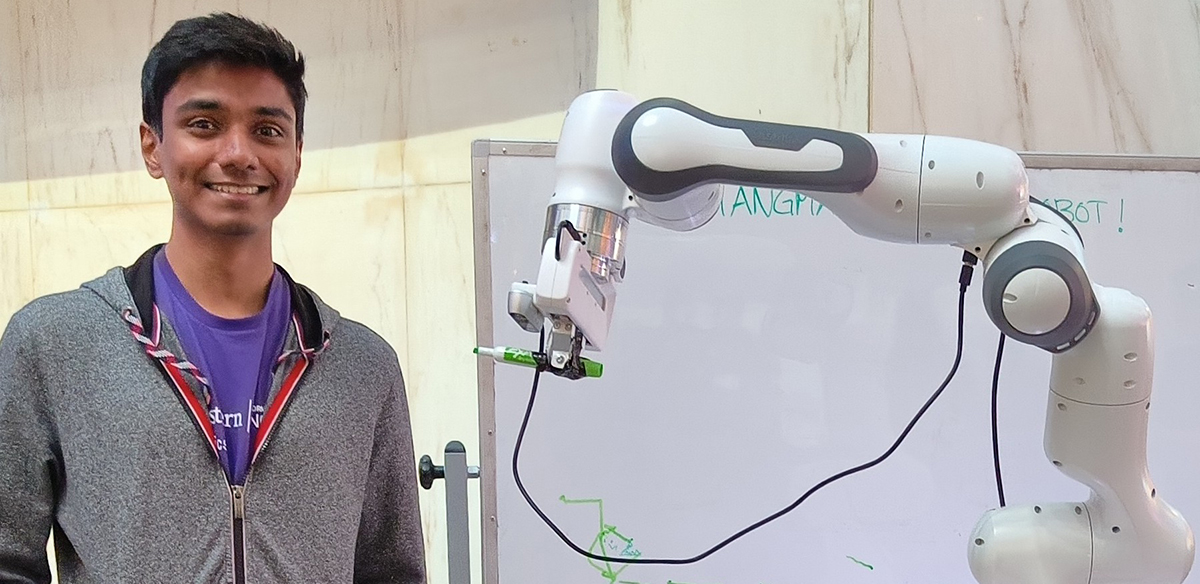Bringing an Entrepreneurial Mindset to Robotics
Abhishek Sankar (MSR '24) shares how a business oriented elective course made him a more well-rounded roboticist.

Abhishek Sankar (MSR '24) wondered what it would take to create his own robotics company.
There wasn't a set company he had in mind when he started Northwestern Engineering's Master of Science in Robotics (MSR) program, but he was curious to learn more about the entrepreneurial journey in the technology space.
An elective course offered through Northwestern's Master of Engineering Management (MEM) program showed him what he was looking for — and more.
Sankar enrolled in Technical Entrepreneurship, a one-quarter opportunity for students to evolve an idea into a business model. The course is designed to expose students to all aspects of creating a technology startup. It is taught by Julian Cheng (MEM '15), who is the managing partner at venture capital firm Gen 1 Capital.
"Julian Cheng has extensive experience mentoring founders and investing in robotics startups," Sankar said. "His class offered me a chance to understand the business side of the robotics field."
The course was structured around a single project. Students were tasked with building a startup based on an idea or technology of their interest. Each student engaged with potential customers and investors to collect feedback and adjust their plans.
The class met weekly to discuss and refine business plans.
Sankar took the class with fellow MSR student Srikanth Schelbert (MSR '24). The two partnered to pitch an idea for a robotic lawn care company called Automatica. The two spoke with local lawn care businesses to understand what challenges could be addressed with the help of autonomous robots.
With that knowledge, the two developed a plan to offer a range of lawn care services, including mowing, seeding, and chemical spraying. They refined the plan after speaking with founders of existing robot lawn mowing companies to ensure their approach aligned with industry demands.
That knowledge-gathering and refinement process was one of the most important takeaways, Sankar said.
"Entrepreneurship gives me the opportunity to work on developing novel ways of solving problems, particularly using robots to address real-world challenges," Sankar said. "It is important to identify real problems faced by customers and build solutions around them."
Sankar learned the value of having concrete and sustainable business models to ensure a company's long-term success. He and Schelbert also created a final pitch for their company at the conclusion of the course, when they learned the value of clear communication to gain customer support and raise investor funding.
"The lessons from this class will be invaluable if I decide to build my own company in the future," Shankar said. "Also, understanding the business side of things gives me a well-rounded perspective on problem-solving, which is essential for any engineer wanting to work in the industry."
Sankar credited MSR leadership with providing students the opportunity to expand their knowledge base beyond the program's core curriculum.
"Elective courses provide a broader education, allowing students to gain insights into various aspects of the industry, such as entrepreneurship, marketing, and management," he said. "It is important for MSR to offer students the opportunity to take such elective classes because understanding market forces and business requirements is just another facet of problem-solving. A well-rounded perspective enhances our ability to take on interdisciplinary challenges and create solutions that are not only technically sound but also viable in the market."

